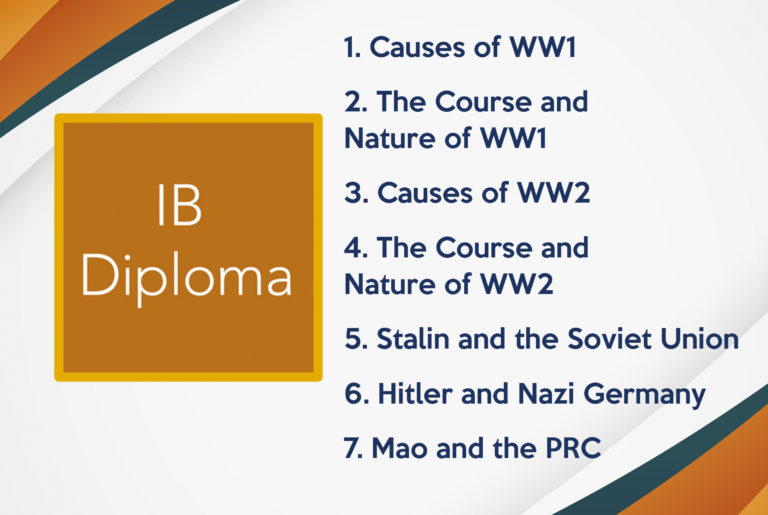Hitler’s Bravery
I don’t want to risk being seen as an apologist for Hitler or some kind of neo-Nazi but I am going to present something that may be seen as controversial but which without, we cannot properly understand, and so explain, Hitler’s rise to power and his success in power (at least until 1941). For I am going to focus on Hitler’s bravery. He was a brave soldier and he was a brave politician. To deny so is to be blind to the truth, and that makes for bad history. So here goes. I am going to focus on three examples of his bravery. The first before he had any notion of entering politics, the second when he had not consolidated his power base, and the third when he was just setting out on a foreign policy that he knew would eventually lead to war, but which at the time Germany was not ready for.
And for the first, we go back to WW1. Hitler not only volunteered to serve in the German army in WW1, but petitioned the Bavarian king, Ludwig III, in order to do so. There is a famous photograph of him in the crowd in the centre of Munich on August 2nd, celebrating the German declaration of war on Russia the day before. He looked genuinely excited by the prospect. And he was in the thick of the fighting throughout the war: the first Battle of Ypres, the Battle of the Somme, the Battle of Arras, the third Battle of Ypres, the Ludendorff Offensive and the last Battle of Ypres too. That is some list.
But what is more, Hitler didn’t just serve, he did so with great personal courage. He was hit in the leg at the Battle of the Somme in October, 1916 and was temporarily blinded by gas in the last Battle of Ypres in October, 1918. He was awarded the Iron Cross, Second Class in December, 1914, and the Iron Cross, First Class (rarely given to men of his lowly rank) in August, 1918. Hitler was undoubtedly a war hero. He not only served his country but fought for the right to do so, He served without complaint, and he served bravely. And there can be no doubt that, though there might have been emotional hyperbole in his account in Mein Kampf, his sense of devastation on hearing the news of the Kaiser’s abdication and the armistice, in other words that the war had been lost, was real.
If we jump forward to 1923 when Germany was once more humiliated (this time by the French occupation of the Ruhr), and its government forced to back down and agree to resume its payments of the hated reparations, Hitler decided to act. He decided to take over the state government of Bavaria before marching on Berlin, in the style of Mussolini’s ‘March on Rome’, and take over the German government. Yes, he was under some pressure to act or else he might lose the leadership of the nationalist cause, but act he did, and he led from the front. What happened in Munich on November 8th–9th was chaotic yet dramatic, farcical yet involving considerable bravery.
On the evening of November 8th, 1923, Gustav Kahr, the State Commissioner, General von Lossow, commander of the Reichswehr in Bavaria, and Colonel Hans von Seisser, the head of the Bavarian State police were all attending a political rally in a beer hall in Munich (quite a normal kind of venue for political rallies at that time). While Kahr was speaking to a crowd of some 3,000 people, S.A. troops surrounded the beer hall and mounted a machine gun at its entrance, whilst Hitler, leading from the front, stormed into the hall. With the place in uproar, Hitler fired a shot into the air and warned the crowd that the hall was surrounded by six hundred armed men. Hitler then took Kahr’s place at the rostrum and announced the National Revolution, claiming that both the state and national governments had been removed and a provisional national government formed; and that both the police and the army in Munich were already on their side.
Hitler then led Kahr, Lossow and Seisser into a side chamber where he threatened them at gun point that if they didn’t join him in the revolution and accept the posts he offered them, then he would shoot all three of them, and then himself. However, they resolutely refused to be bullied into something they clearly did not support. At this point, the crowded hall needed reassuring and Hitler went back into the hall and simply announced that the three had joined him in forming a new national government. Hitler would head the government and Ludendorff would take over the leadership of the Army which, he assured them, would back him. He cried out to the crowd, ‘I can say this to you. Either the German Revolution begins tonight, or we will all be dead by dawn!’1 It was dramatic stuff. But it was all sheer bluff. Nothing that the crowd had been told was true. Hitler was no more in a position to seize control of Munich, never mind Germany, as anyone else in the crowd.
Meanwhile a trusted colleague had been sent to bring Ludendorff, who knew nothing of the plan, to the beer hall. When he arrived and learnt what was going on, he was furious at being associated with a coup. Nevertheless, Ludendorff seemed to win the triumvirate over. Hitler Kahr, Lossow and Seisser, now with Ludendorff, all returned to the meeting and all pledged their support to the putsch. The meeting broke up convinced that a coup was underway.
From this point things went badly wrong for the putsch so that by the following morning they had to hastily adopt an alternative plan. It was actually suggested by Ludendorff. He and Hitler would march at the head of their supporters to the centre of the city and take it over. Ludendorff was convinced that no soldier nor the police (who were mostly ex-soldiers) would fire on him, such was the esteem he thought he still had. And this is what they did, marching out of the gardens of the beer hall at the head of 3,000 storm troopers. Hitler waved his revolver, the storm troopers were armed with rifles, some with bayonets fixed, and there was a truck with machine guns at the ready. And they had hostages, taken during the meeting in the beer hall and including two Bavarian cabinet ministers. This got them through the cordon of police guarding the Ludwig Bridge which they needed to cross.
But when they met a second cordon of police near the War Ministry (where Rohm and his men were still surrounded by regular troops in a stand-off), the police stood firm. As is understandable in such events, it is unclear which side fired the first shot, but shots were fired on both sides and sixteen Nazis and three policemen were killed, many more wounded. The marchers had been linked to each other. The man linked to Hitler’s left was killed, Goering was badly wounded. Hitler dislocated his shoulder as he fell to the floor. The marchers fled, all except for Ludendorff who stood his ground. Hitler was sped away to the home of a close friend of Hitler. It was from there that he was arrested two days later. Ludendorff was arrested on the spot. Goering was smuggled across the border into Austria. Rohm surrendered at the War Ministry.
Now OK, the coup was badly planned (it could even be described as desperate) but nevertheless, it was bravely carried out by Hitler. Throughout he led from the front, both in seizing control of the meeting in the beer hall and in leading the march through the streets of Berlin and facing down the armed police. The comrade next to him was shot dead, it could just have easily have been him (don’t we wish). We can say the plot was foolish, we can declare it an act of treason but we cannot deny the bravery of those who took part, particularly the man who led it.
Next I want to jump forward to June, 1934. Hitler is now Chancellor of Germany but has not yet fully consolidated his hold on power. Whilst he was concerned that the elites, particularly the army, could still turn against him, he also faced a threat from within his own party as the SA led by Rohm were demanding a second socialist revolution that Hitler didn’t want (so they might move against him, and they numbered some two million and were armed).
Everyone in Germany was also aware of Hindenburg’s failing health and rumours of plots and counter-plots were swirling around Berlin again as tension rose. Hitler met with Hindenburg and was told in no uncertain terms that unless the present state of tension was brought quickly to an end, the President would impose martial law and would hand over the running of the state to the Army. The old man was clearly not finished as Hitler had thought, and he could yet pull the rug from under Hitler. Hitler was in danger of losing power. Then on June 25th General von Fritsch put the army on a state of alert, cancelling all leave. Hitler received reports that the SA were planning putsches in Berlin and Munich (there were in fact no such plans – there were never any plans to overthrow Hitler). So as in 1923, he was being pressured to act, but as in 1923, act he did.
In the early hours of June 30th, Hitler flew to Munich and drove to Wiessee, near Munich, where Rohm was meeting with SA leaders. There he led the arrests, personally arresting Rohm. SA leaders were summarily executed. It is said that Hitler had given Rohm the opportunity to end his own life, giving orders for a gun to be left in his room, but when Rohm declined the offer, he too was shot. Back in Berlin, 150 SA leaders were rounded up and shot. Others to whom the Nazis held a deep grudge also fell victim to the purge. Schleicher, who you will know of, was shot on his doorstep. Gregor Strasser, who you might know of, was also killed. The total number killed is unknown, the Nazis put it at seventy-seven but other investigations have put the number much, much higher.
In a speech to the Reichstag (now a chamber without any authority, a chamber consisting almost exclusively of Nazis) on July 13th, Hitler declared: ‘In this hour I was responsible for the fate of the German people, and thereby I became the supreme judge of the German people.’
He had acted decisively, he had acted bravely and again, he had led from the front.
Now I accept that we can put another spin on Hitler’s actions in 1923 and again, in 1934: desperate, foolhardy, reckless, criminal, all come to mind. But they were also brave, and that’s certainly how Germans came to see them (whilst his war record spoke for itself). Here was someone standing up, not for personal gain, but for his county and for what he believed (Mein Kampf – My struggle). Here was also someone who would lead from the front. Contrast this to the way the “November criminals”, the leaders of Weimar who had overseen the “Treaty of Shame”, 1923 and the Great Depression were perceived. Hitler was seen as a brave man and I think he was a brave man. He was also desperate, foolhardy, reckless and criminal at times, and downright evil too. But we have to see the whole picture if we are to make a full explanation of why Germany, elites and people, turned to Hitler and why they overwhelmingly stayed with him to the bitter end.
1 Quoted in Robert Gellately, Lenin, Stalin and Hitler: The Age of Social Catastrophe, p 114





